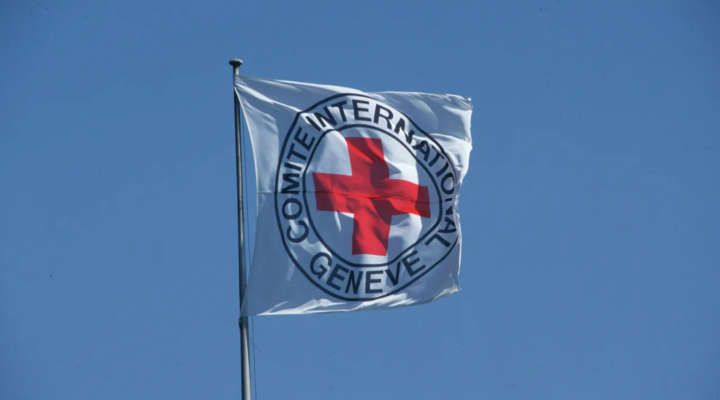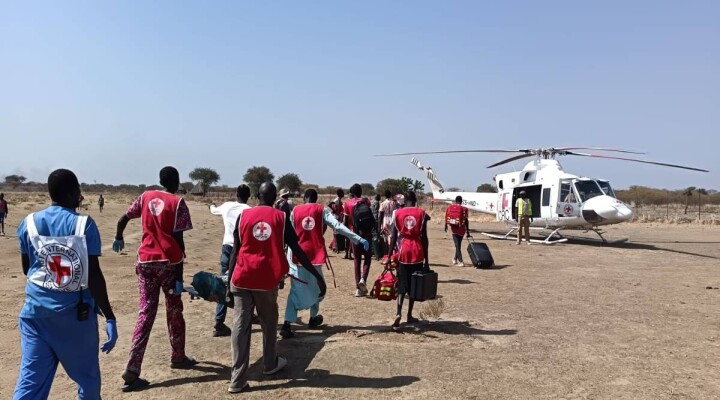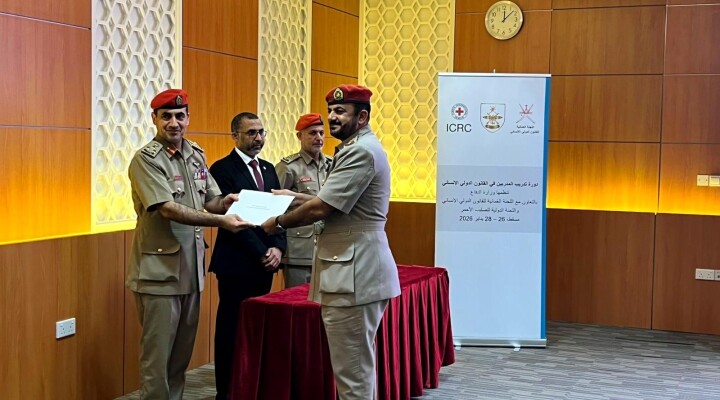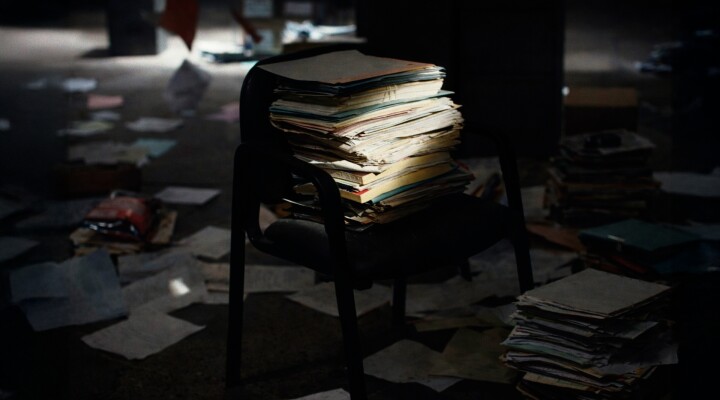Mozambique, Cabo Delgado: increased violence and attacks push a third of the population from their homes
The International Committee of the Red Cross (ICRC) is increasingly worried by the rapidly deteriorating humanitarian situation in Cabo Delgado province of Mozambique. More than 800,000 people have been displaced since last year, following a dramatic escalation of the conflict. This represents over one third of the population of the province, that suffered from poverty and climate shocks even before the increase of armed violence. “We fled with our young children and brought them here where we live a difficult life,” said Ana Ayuba, a displaced person from Quissanga.
The attack on the town of Palma in March this year alone caused displacement of over 60,000 people, while thousands are still unaccounted for. Displaced people and communities hosting them face harsh living conditions. “My biggest problem is the fish business my son has been doing my son is weak... if you’re someone who has a family then just one job isn’t enough, just one job doesn't help,” said Fatima Suleman, a displaced person on Matemo island.
Following recent attacks, many people fled to Nangade, Mueda and the city of Montepuez, putting additional strain on health and water infrastructure supply services in these urban settings. The municipality of Montepuez, for example, has received tens of thousands of people since the beginning of the year, and urban water supply network cannot cope with the increasing needs.
Health facilities in the city also find it increasingly difficult to provide adequate services to the growing population. “We need more trained staff; more nurses and the current structure is not big enough to host all. There are many more patients coming from the conflict zone,” said Jose Antonio Albino, Director of Namweto Hospital, Montepuez
The situation is even more dramatic on the nearby island archipelagos of Matemo and Quirambo, and on Ibo islands, where displaced people land with nothing but the clothes on their backs after a dangerous sea journey. The hospital on Ibo islands was destroyed by Kenneth cyclone, so now there is only one health center serving the whole archipelago and only one doctor. Accessing health services is even more difficult for people living on the nearby islands, who are often unable to organize and pay for a boat to reach the health centre on Ibo.
In order to respond to the growing humanitarian needs in Cabo Delgado, the ICRC is scaling up its activities in the country and opened a new delegation in Mozambique on July 1st this year. The major priority is to improve access to the essential services, constructing new and rehabilitating existing water and health infrastructure on the mainland and on the islands.
In partnership with the city of Montepuez, the ICRC will contribute to build a new water distribution system to respond to the increased water needs of the city. It is also looking into scaling up its health response in order to offer mental health services to the displaced people, who faced highly traumatizing situations in the course of the conflict.
Location: Quirambo and Matemo archipelago and mainland, Cabo Delgado Mozambique
Length: 9.24
Format: mp4
Camera: Mark Ng’ang’a
Date: 01/07/202
Copyright: ICRC access all
00:00 --> 00:00:13
Various shots, Noor preparing and casting a fishing line.
00:13 --> 00:22
Interview: Fatima Suleman: I had eight children, the eighth died along with his father, now I remain with seven. My husband, my son and my sister-in-law's son died, that’s a total of three that I lost.
00:22 --> 00:30
Wide shot, Noor enters frame, wading in the ocean.
00:30 --> 00:53
The worry I have is that the business I’ve built is weak, well, I work and I buy, but my biggest problem is the fish business my son has been doing my son is weak and we haven’t yet made plans to open another business to be able to get by,
00:53--> 01:08
Various shots establishing Matemo Island's beach front
01:08 --> 01:20
Wide shot, Matemo Island. Funeral procession enters frame, people walking into background
01:20 --> 01:26
Interview, Melanie Isabelle Brouillette, ICRC Deputy Head Pemba Subdelegation.
The people that displaced in these locations are often people that come from the coastal area of the mainland.
01:26 --> 01:32
From districts anywhere from Macomia, Palma and Mocimba da Prai
01:32 --> 01:41
Various shots, woman drawing water from a shallow well.
01:41, --> 01:44
Medium shot of cooking utensils with basin of water.
01:44 --> 01:47
Long shot of children seated on bricks in front of a tented shelter.
01:47 --> 01:58
Various shots of internally displaced people who have freshly arrived in Matemo Island.
01:58--> 02:04
Various shots of house hold items that internally displaced people arrived with in Matemo Island.
02:04 --> 02:21
Interview, Melanie Isabelle Brouillette, ICRC Deputy Head of Subdelegation, Pemba. So here on Matemo Island and in the islands surrounding the Ibo districts the people are lacking many necessities. They have lack of food, lack of access to primary health care, and they are extremely traumatised.
02:21, --> 02:29
Interview: Ana Ayuba, Displaced person from Quissanga. One son got separated from us and we don't know what state he’s in, whether he’s alive or not,
02:29 --> 02:34
whether he died or if he’s alive, that’s why our hearts are all upset
02:34, --> 02:40
Because if we knew he was dead we’d put it behind us but we can’t afford to put it behind us because we don’t know anything.
02:40 --> 02:44
Establishing shot, Metuge camp
02:44 —> 03:00
Various shots, Ana preparing food in her shelter at Metuge camp
03:00 --> 03:06
Wide shot, Ana with her daughters in their shelter.
03:06 --> 03:15
Interview: Ana Ayuba, Displaced person from Quissanga. We fled with our young children too and brought them here where we live a difficult life, and this is the hut we live in.
03:15 --> 03:27,
Interview, Melanie Isabelle Brouillette, ICRC Deputy Head Subdelegation Pemba.
With the arrival of so many people, although the host community is really tying to cope with this by receiving them in their villages, in their shelter, it's not enough
03:27-->03:50
Various shots, patients in health centre on Ibo island
03:50 --> 03:57
Various shots, patients outside health centre on Montepuez
03:57 --> 04:36
Interview, Jose Antonio Albino, Director of Namweto Hospital, Montepuez
We need a new building because the old building was not sufficient to cover the needs of all the newly arrived displaced. There are a lot of needs. We need more trained staff, more nurses and the current structure is not big enough to host all. There are many more patients coming from the conflict zone.
04:36 —> 05:06
Various shots, Fatima making friend dumplings in her house.
05:06 --> 05:17
Interview Fatima Suleiman, Resident Quirambo island.
This is an island, and the work on the island is boats and fishing and if God blesses me it’s what I’d like to do in the future, ohhh! I have no one, there’s only me and my son and my family;
05:17 --> 05:34
Various shots, Noor fishing
05:34 --> 05:47
Wide shot, Noor wading out of the ocean.
00:05:47,397 --> 00:05:55,171
Wide shot, Noor and his mother Fatima.
05:55 —> 06:16
Various shots, women pounding floor in Quirambo island.
06:16—> 06:56
Various shots, shelters in Quirambo island
06:56, --> 07:06
Various shots, young boys seated at an abandoned building.
07:06 --> 07:43
Various shots, Noor searching for fishing baits.
07:43 --> 07:52
Various shots, Noor standing facing the ocean.
07:52, --> 08:40
Various shots, Noor fishing baits
08:40 --> 09:02,
Medium shot, unknown diver snorkelling for fish while towing a wooden boat.
09:02 --> 09:07
Close up of ICRC flag on a moving pboat.
09:07 --> 09:13
Long shot of ICRC staff walking towards a man on a beach in Matemo island.
09:13 --> 09:24
Long shot of an anchored powered boat.



